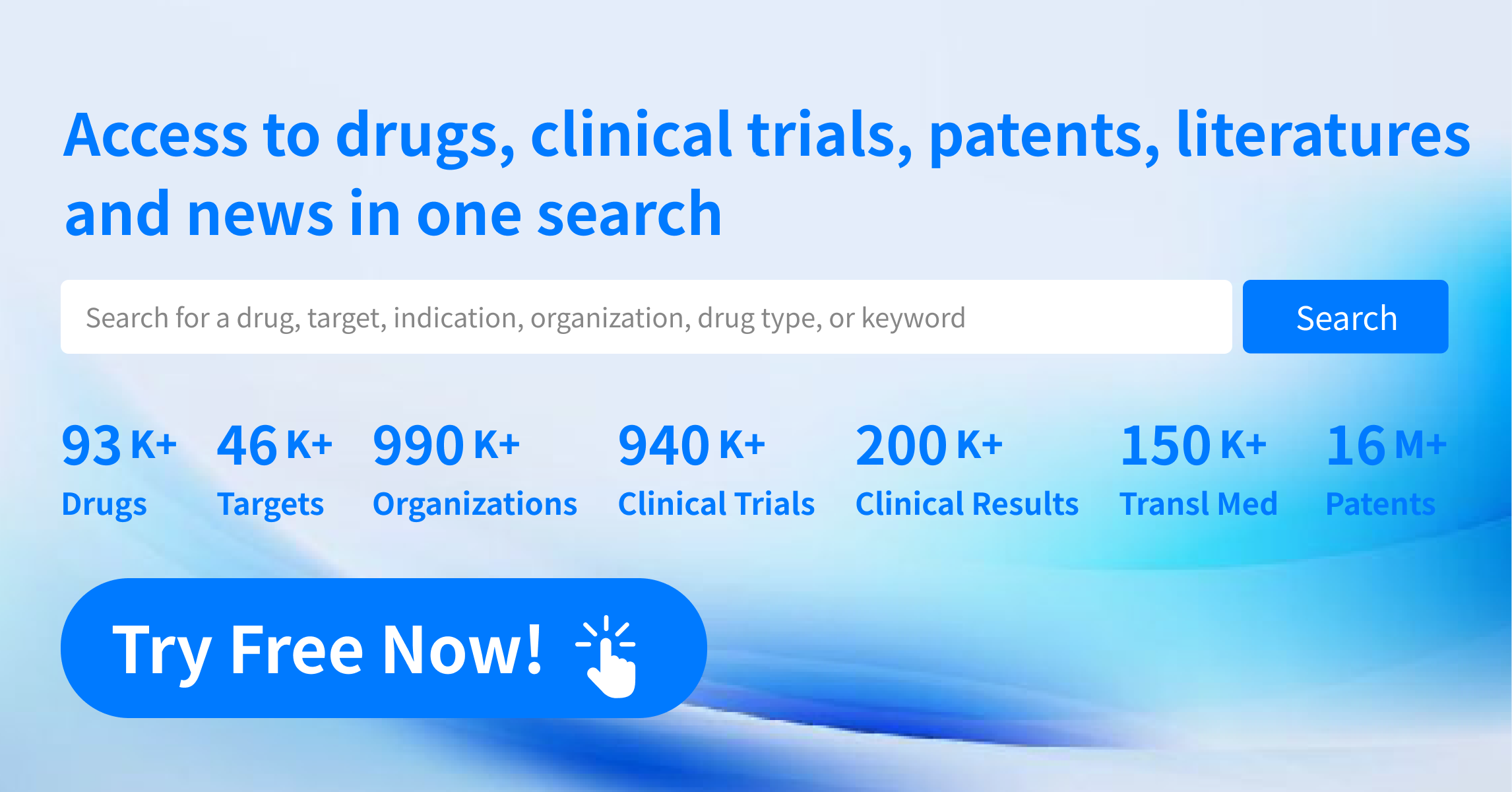Johnson & Johnson's Dual IL-23 Inhibitor Guselkumab Receives FDA Approval for Ulcerative Colitis
On September 11, 2024, Johnson & Johnson announced that the U.S. Food and Drug Administration (FDA) has approved Tremfya (guselkumab) for the treatment of moderate to severe active ulcerative colitis (UC) in adult patients. The company claims that Tremfya is the first and only dual-acting inhibitor targeting interleukin 23 (IL-23) to be approved for this indication, solidifying Johnson & Johnson’s leadership position in the field of inflammatory bowel diseases.
About Guselkumab
Guselkumab is the first IL-23 inhibitor globally approved, selectively binding to the p19 subunit of IL-23 and blocking its interaction with the IL-23 receptor. This mechanism of action yields significant therapeutic effects across various autoimmune diseases. Guselkumab not only inhibits IL-23 but also interacts with the CD64 receptor on cells that produce IL-23. Tremfya has garnered approvals for treating plaque psoriasis, active psoriatic arthritis, and UC. Additionally, in June 2024, Johnson & Johnson submitted a supplemental Biologics License Application (sBLA) to the FDA for the treatment of moderate to severe active Crohn's disease (CD) in adults.
Study Data Supporting Approval
The FDA's approval for UC was primarily based on data from the Phase 2b/3 QUASAR study. This study assessed the efficacy and safety of Tremfya in adult patients with moderate to severe active UC who had an inadequate response or intolerance to conventional therapies, other biologics, and/or JAK inhibitors. The results demonstrated that 50% of patients receiving Tremfya 200 mg subcutaneously (SC) every four weeks (q4w), and 45% of patients receiving Tremfya 100 mg SC every eight weeks (q8w), achieved the primary endpoint of clinical remission at Week 44, compared to 19% of those receiving placebo (p<0.001). Additionally, one year after maintenance therapy, 34% (200 mg) and 35% (100 mg) of patients achieved endoscopic remission, as opposed to 15% in the placebo group (p<0.001).
During the induction treatment phase, the most common adverse reactions (>2%) for both Tremfya and placebo groups were respiratory infections. In the maintenance phase, the most frequent adverse reactions (>3%) among patients treated with Tremfya or placebo included injection site reactions, joint pain, and upper respiratory infections.
About IL-23 p19 Drugs
IL-23 p40 serves as a common subunit for both IL-12 and IL-23, with p40 antibodies providing a classical immunotherapy by blocking both IL-12 and IL-23 pathways. However, recent developments in IL-23 p19 antibodies, exemplified by guselkumab, have shown superior efficacy and safety profiles compared to p40 antibodies. The p19 subunit, besides forming the classical inflammatory cytokine IL-23 with p40, can also combine with EBI3 to form IL-39, which activates pathways involving IL-23R and gp130. Both IL-23 and IL-39 can trigger intracellular JAK-STAT signaling pathways, thereby stimulating the secretion of IL-17A/F.
This sophisticated approach to targeting IL-23 not only reaffirms Johnson & Johnson’s innovative footprint in treating inflammatory and autoimmune diseases but also signals a promising horizon for patients battling these chronic conditions.
In October 2023, Eli Lilly's Omvoh (mirikizumab) received FDA approval for the treatment of adults with moderately to severely active ulcerative colitis (UC). This marks the first IL-23p19 antagonist approved for this patient group. Additionally, AbbVie's risankizumab was the first IL-23 inhibitor to receive FDA approval for inflammatory bowel disease (IBD). It was approved for Crohn’s disease (CD) in June 2022 and for UC in June 2024.
About Inflammatory Bowel Disease (IBD)
IBD is a nonspecific, chronic, relapsing inflammatory condition of the intestines, commonly presenting with symptoms such as diarrhea, rectal bleeding, abdominal pain, fatigue, and weight loss. The precise cause and mechanism of IBD are not fully understood. However, the prevailing theory suggests that it involves an autoimmune dysfunction triggering an abnormal immune response, leading the immune system to attack normal cells in the digestive tract. IBD includes two main disorders: ulcerative colitis (UC) and Crohn's disease (CD).
UC causes inflammation and ulcers on the surface lining of the colon and rectum, whereas CD can affect any part of the digestive tract, typically involving deeper layers of the gut lining. In rare cases, it can also affect the colon and upper gastrointestinal tract.
In 2019, the global prevalence of IBD was approximately 4.9 million, with China accounting for 910,000 patients. From 1990 to 2019, the incidence of IBD in Chinese men increased from 1.72 cases per 100,000 to 3.35 cases per 100,000, while in women, the numbers rose from 1.20 to 2.45 per 100,000. The current global market for IBD therapies has expanded to $18 billion.
Research indicates that the migration of white blood cells into intestinal tissue is key to the onset and persistence of IBD. This process depends on the specific binding between adhesion molecules on endothelial cells (such as VCAM-1, MAdCAM-1) and integrins on white blood cells, composed of α and β subunits. Targeting and inhibiting these specific interactions can effectively treat intestinal inflammation in IBD.
Elevated levels of cytokines such as tumor necrosis factor-alpha (TNF-α), interleukin-12/23 (IL-12/23), and leukocyte adhesion molecules are commonly seen during active disease phases of IBD. Inhibiting these cytokines can effectively disrupt downstream inflammatory responses and leukocyte chemotaxis, which lead to mucosal damage.
Other targets such as the Janus kinase (JAK)/STAT pathway and gut microbiota are increasingly being recognized for their roles in IBD. Since the etiology and pathogenesis of IBD remain unclarified, it cannot be cured. Current drug therapies focus on reducing inflammation, maintaining remission, lowering relapse rates, and reducing the need for surgery. Common treatments include anti-inflammatory drugs, immunosuppressants, antibiotics, small molecule oral drugs, and biologics. Compared to traditional drugs like 5-aminosalicylic acids, steroids, and immunosuppressants, biologics are becoming the mainstream treatment for IBD due to their clearer efficacy and better safety profiles.
Johnson & Johnson's Position in IBD
In the IBD sphere, Johnson & Johnson has developed TNF-α inhibitors infliximab and golimumab, each generating over $2 billion in sales in 2023. In addition to guselkumab, the company is developing the first IL-12/23 antibody Stelara (ustekinumab) and the oral IL-23 inhibitor JNJ-2113 for IBD indications. Furthermore, the company is working on a combination therapy for recurrent patients using guselkumab and golimumab (JNJ-8408). According to incomplete statistics, Johnson & Johnson currently has nearly 20 drugs in development for the treatment of inflammatory bowel disease.
How to obtain the latest research advancements in the field of biopharmaceuticals?
In the Synapse database, you can keep abreast of the latest research and development advances in drugs, targets, indications, organizations, etc., anywhere and anytime, on a daily or weekly basis. Click on the image below to embark on a brand new journey of drug discovery!




